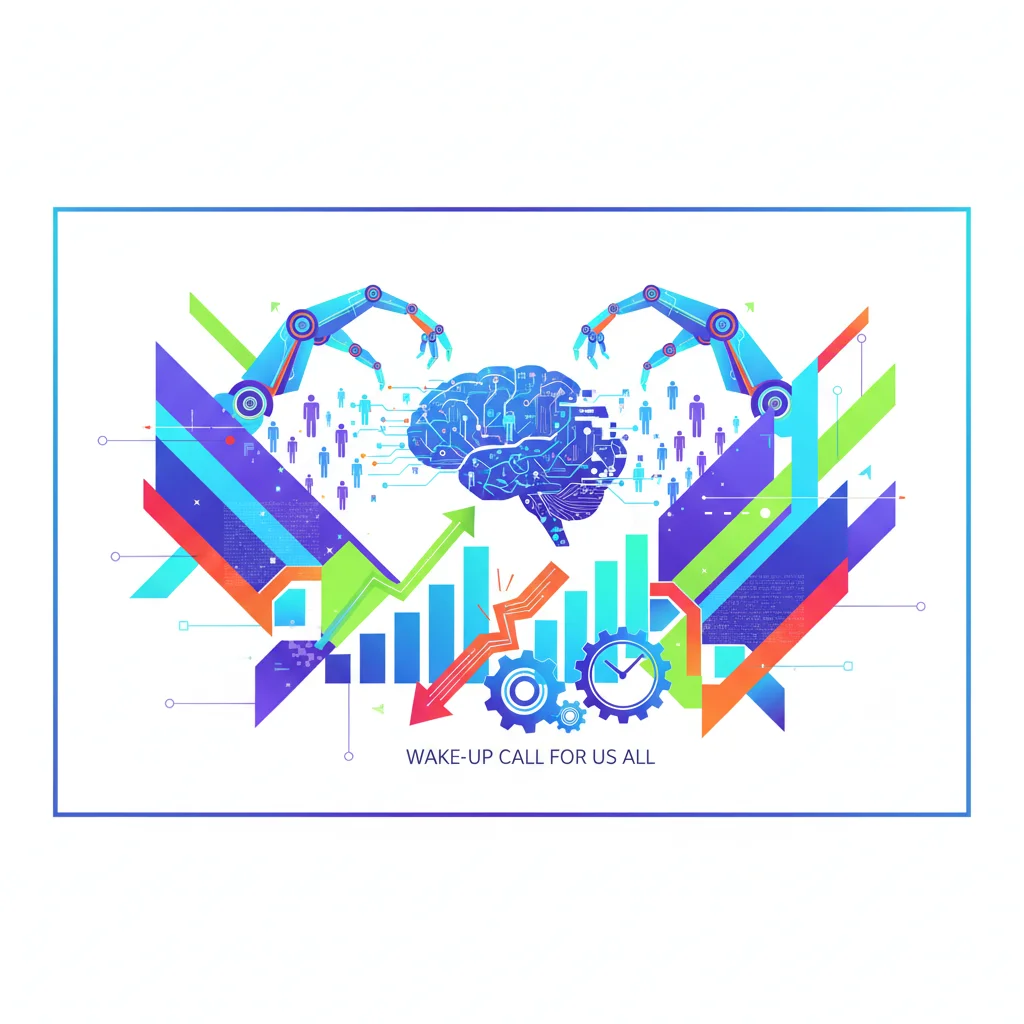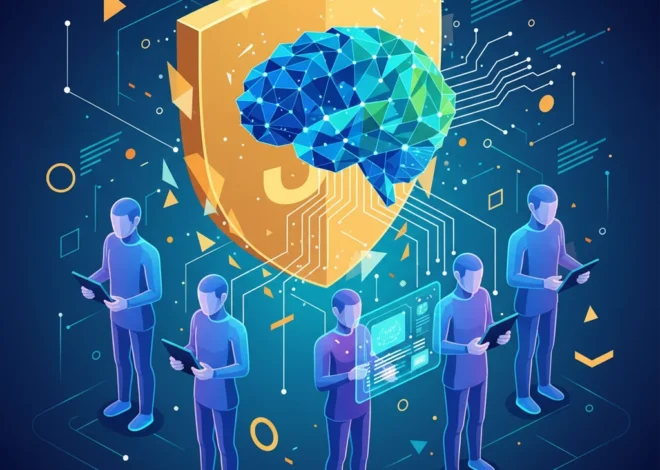
AI Just Redefined 100,000 Jobs: Why PwC’s Hiring Reversal Is a Wake-Up Call for Us All
Imagine setting a goal so audacious it makes global headlines: hiring 100,000 new people in just five years. That’s exactly what PricewaterhouseCoopers (PwC), one of the planet’s most powerful accounting and consulting firms, pledged to do back in 2021. It was a cornerstone of their “New Equation” strategy, a $12 billion investment meant to build a workforce for the future.
Then, something changed. Quietly, without a press release or a flashy announcement, that 100,000-person target vanished from their reports. The reason? A perfect storm of slowing revenue growth and, more profoundly, the meteoric rise of artificial intelligence.
This isn’t just another story about corporate belt-tightening. PwC’s silent pivot is one of the most significant signals yet that the AI revolution isn’t a distant, sci-fi concept. It’s here, it’s happening now, and it’s fundamentally rewriting the rules of knowledge work. For developers, entrepreneurs, and tech professionals, this is more than just news—it’s a roadmap to the future and a massive opportunity.
The Plan That Was: A Glimpse into the “Old” Future
To understand the magnitude of this shift, we need to rewind to June 2021. The world was emerging from the pandemic, and digital transformation was the mantra on every CEO’s lips. PwC launched “The New Equation,” a strategy designed to build trust and deliver sustained outcomes. A key pillar of this strategy was a massive talent infusion. The firm promised to increase its global headcount from 295,000 to nearly 400,000 by 2026, a staggering pledge to add 100,000 net new jobs.
The vision was clear: more people to tackle more complex problems in areas like ESG (Environmental, Social, and Governance) and cybersecurity. But the underlying assumption was based on a traditional, human-centric growth model: more clients and more revenue require a proportional increase in human headcount. For decades, this was the unquestioned formula in professional services.
Fast forward to today, and that formula is being aggressively challenged by a new variable: generative AI. While a cooling global economy certainly played a part in the decision, the elephant in the room is the newfound power of automation and machine learning. PwC, along with its “Big Four” peers (Deloitte, EY, and KPMG), is investing billions in AI, and it’s starting to pay dividends in efficiency.
Why hire ten junior auditors to manually sample financial transactions when an AI model can analyze 100% of the data in a fraction of the time with greater accuracy? Why task a team of consultants with weeks of market research when a large language model (LLM) can synthesize global trends and generate initial strategic frameworks in minutes?
How AI Is Devouring the Professional Services Playbook
For those of us in the tech world, the capabilities of modern AI are familiar. But for legacy industries like accounting and consulting, it’s a seismic event. This isn’t just about better spreadsheets or faster email clients. It’s about automating the core “knowledge work” that has been the bedrock of their business model for a century.
Here’s a breakdown of how AI is transforming the landscape:
- Audit and Assurance: Traditionally, auditing involved sampling—reviewing a subset of a company’s financial records to look for errors. Now, AI-powered software can perform full-population testing, analyzing every single transaction to identify anomalies and potential fraud. This not only boosts efficiency but dramatically improves the quality and reliability of audits.
- Tax and Legal Services: Imagine reviewing a 500-page M&A contract for specific clauses. This once took teams of junior lawyers days. Now, an AI can do it in minutes. The same applies to tax compliance, where AI can process vast amounts of regulatory information and financial data to optimize filings and ensure accuracy.
- Consulting and Advisory: Consultants are paid for their strategic insights. AI is becoming a powerful partner in this process. It can analyze market data, simulate business scenarios, and even draft initial reports, freeing up human consultants to focus on higher-level strategy, client relationships, and creative problem-solving. PwC itself is investing $1 billion in generative AI technology from Microsoft and OpenAI, a clear sign of where they see the future.
From Headcount to “Tech-Count”: The New Growth Metric
PwC’s quiet reversal signals a broader trend. The measure of a company’s strength is shifting from pure headcount to what we might call “tech-count”—the sophistication and integration of its technology stack. A single data scientist armed with the right cloud infrastructure and machine learning models can now deliver the same value as a dozen traditional analysts.
This has profound implications for everyone in our target audience.
For developers and tech professionals, your skills have never been more valuable. The demand for expertise in AI, programming (especially Python), cloud architecture (AWS, Azure, GCP), and cybersecurity is skyrocketing within these traditionally non-tech industries. They need people who can build, deploy, and secure the very systems that are redefining their businesses.
For startups and entrepreneurs, this is a gold rush. Every legacy process at a Big Four firm is a potential idea for a disruptive SaaS product. Think about it:
- A SaaS platform for AI-powered contract analysis.
- A cloud-based tool for real-time, automated financial auditing.
- A machine learning service for predictive M&A due diligence.
The market is ripe for innovation, and agile startups can build and deploy these solutions faster than a behemoth like PwC can transform from within.
To visualize this change, consider the evolution of core professional service tasks:
| Task Category | The Old Way (Human-Scale) | The New Way (AI-Augmented) |
|---|---|---|
| Data Analysis | Manual spreadsheet work, statistical sampling, high risk of human error. | Automated ingestion of full datasets, ML models identify patterns, humans validate insights. |
| Document Review | Teams of junior associates manually reading thousands of pages over weeks. | AI scans and categorizes documents in minutes, flagging key risks and clauses. |
| Client Reporting | Manually building slide decks and writing summaries based on analysis. | AI generates real-time dashboards and drafts narrative summaries for human review. |
| Strategic Planning | Brainstorming sessions based on experience and manual market research. | AI-driven scenario modeling, predictive analytics, and competitive intelligence. |
This table illustrates a fundamental shift from human-as-doer to human-as-editor-and-strategist. The value is no longer in performing the tedious task but in knowing what questions to ask the AI and what to do with the answers. This is a crucial distinction and a source of immense opportunity. According to the original report, even with the scrapped target, PwC’s headcount has still grown by over 60,000 since 2021, showing that growth is still happening—it’s just the *nature* of that growth that’s changing.
The Code Red Shift: Why Silicon Valley's Titans Are Ditching Liberalism for the New Right
The Road Ahead: Navigating the AI-Driven Economy
PwC’s story is a microcosm of a global economic transformation. The paradigm of “scaling with people” is being replaced by “scaling with technology.” While this can be unsettling, it’s also a powerful catalyst for progress and innovation.
The key takeaway is not to fear job losses, but to focus on skill evolution. The jobs of tomorrow will require a hybrid of domain expertise and technological fluency. An accountant who understands programming, a lawyer who can use AI for legal research, or a consultant who can build machine learning models will be unstoppable.
Furthermore, as companies lean more heavily on AI and automation, the importance of robust cybersecurity cannot be overstated. Protecting the vast amounts of sensitive client data being fed into these models and securing the AI systems themselves from manipulation is a critical and growing field.
PwC didn’t cancel its future; it redefined it. The company is betting that a smaller, more technologically-empowered workforce can achieve more than a larger, traditionally-structured one. They are trading headcount for “tech-count.”
The question every professional, founder, and developer should be asking is: “How am I doing the same?” The 100,000-job target may have vanished into thin air, but in its place, millions of new opportunities are being created for those who are ready to build, adapt, and lead in the age of artificial intelligence.


